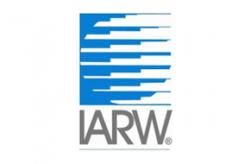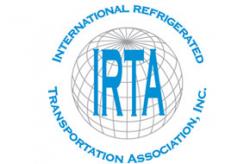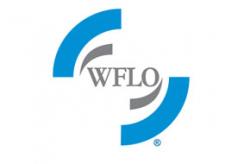Advocacy Around the World
How GCCA activism has evolved over the past few years.
“What we’re seeing the last couple of years is the evolution of the advocacy efforts we have successfully broadened in the United States and globally.”
When Lowell Randel, Senior Vice President, Government and Legal Affairs, joined the Global Cold Chain Alliance in 2009 to direct the association’s government relations efforts on behalf of its members, a government affairs department did not actually exist. But GCCA had surveyed its membership in the United States and regulations and regulatory issues were its highest priority.
“We embarked to build our advocacy program with heavy regulatory focus in the United States, and over the past decade, it has proven to be successful and has had significant impacts to benefit the industry,” says Randel. “Most recently, our advocacy efforts have branched into legislative work, and we intend to continue and expand and dedicate even more resources on legislative issues.”
Cold Chain in the Spotlight
In the past, the cold chain and supply chain were fairly under the radar, Randel says, which was not problematic as the industry was successful despite the lower profile. However, the pandemic propelled the food supply chain into the spotlight, and not just in the United States, but globally. Everyone realized they were dependent on a global cold chain, and the world started to pay more attention to how food moves through the system. The GCCA stepped up to be more proactive, not only in advocacy, but also in communications.
“During the pandemic, we talked with more U.S. and international press in two years than we had in probably the previous 20 – we were getting calls from global news outlets looking for insight into food supply chains, and we had to be ready to effectively communicate that messaging across the globe,” Randel explains. “We had an opportunity to shine a light on the role the industry plays and better tell our story and deliver our message in a way we had not needed to in the past.”
U.S. Regulatory Scene
As the Biden administration enters its second year, agencies such as the Environmental Protection Agency (EPA), Occupational Safety and Health Administration (OSHA) and the Food and Drug Administration (FDA) are preparing to take significant regulatory actions, Randel reports. The Biden administration’s regulatory agenda includes proposals that will result in changes to several regulations impacting cold chain businesses. As a result, GCCA expects heavy rulemaking activity in 2022.
“GCCA has been, and will continue to be, closely engaged with the agencies to promote the interests of the cold chain as each of these rulemakings moves forward,” notes Randel.
In an effort to understand the regulatory issues of most importance to members, GCCA conducted surveys of its membership in the United States, Canada and Europe that provided both quantitative and qualitative results.
In the United States, the top three regulatory issues ranked by level of importance to members were 1. Labor 2. Food Safety and 3. Occupational Safety. (See Figure 1.)
When asked what specific challenges members faced from these three top areas of concern, responses included:
• Labor: hiring and shortage of willing workers
• Family and Medical Leave Act (FMLA) requirements
• Minimum wage increases
• Labor unions
• Driver shortage and CDL hours of service, medical and age restrictions
• Federal Rail Administration regulations
• Unnecessary covid requirements
• Emergency Temporary Standard (ETS) and other potential COVID mandates
• Food safety: increasing regulations
• Taxation and future impact of corporate and pass through to individual rates
• Supply chain problems
Advocacy Abroad
At the same time GCCA is building and expanding its advocacy in the United States, it’s exploring how to be effective advocating in other parts of the world, Randel explains.
“That’s been an increased focus of our advocacy over the last year or so and we’ve started to see pieces of that evolve,” notes Randel. “Our advocacy work started in earnest in Brazil when we were able to bring on a local consultant to assist with key regulations impacting meat and poultry trade, and we’re already seeing some success.” In Canada, Randel notes, GCCA has also had some success modernizing ammonia regulations in Ontario.
“These are examples of how we have been effective in impacting policy in different regions,” Randel says. “Now we’re looking at how we take these efforts and build them out in other parts of the world. Absolutely we have to have a global presence and a global strategy for impacting policy. It’s been a big task just in the United States, but now with members in approximately 80 countries, we have to advocate where we will have an impact, and most recently that has been Brazil and also Canada.”
Randel says GCCA wants to export that proactive, rather than reactive, strategy to deal with ongoing challenges. “We need to be more proactive in other regions of the world as we are in Brazil, Canada, the EU, Latin America, and start building programs across the globe, region by region.”
Front and center of the GCCA advocacy program is that it is member driven, Randel says. “Member engagement is really critical, which is why we’re surveying members regionally, and also we recognize there are different leadership structures in different regions. As we explore expanding advocacy into different regions, it is how we will drive and maximize results for our members.”
Brazil’s Regulatory Scene
“The primary regulatory issues impacting the cold chain in Brazil are first, the lack of a specific regulation for the sector; second, the lack of standardization in the application of the legislation by the inspectors (each one has a different interpretation of the law); and third, the inclusion of warehousing activity in the meat and derivatives segment, which means we must follow the same sanitary guidelines as the establishments that slaughter and process animal products,” explains Vivianne Moreira Leite, one of two GCCA government affairs consultants in Brazil.
“In Brazil there is a diversity of norms and laws issued by federal agencies,” says Carlos Franco, GCCA’s second government affairs consultant in Brazil. “The lack of clear and objective standards for cold chain logistics may result in operational challenges that can harm the process.”
Franco says the regulations are especially aimed at ensuring the control of the atmosphere temperature in the cold chain in different stages (in cold chambers and containers). These standards also guide and regulate the standardization of equipment used in the cold chain.
Leite notes the importance of these three regulatory issues refers to the difficulty of the industry to be able to technically support itself in cases of noncompliance. “This leads to a disagreement between the parties as legislation that does not apply to an activity allows for different understandings on the same topic,” she says. “Furthermore, it burdens us operationally in ways that should not be necessary (frequent water analysis, use of a sanitary barrier, knife sterilizer, etc.).”
Another relevant fact, adds Leite, is that the negotiations with the Ministry of Agriculture take years to be addressed or often fall into oblivion. “This is the case with our technical consultations and the review of various ordinances.”
The strategy proposed by the GCCA was the writing of a normative instruction that could be applied in all warehouses of products of animal origin, explains Leite. “The benefit would be the standardization of measures, respecting the operational aspects of each company, and the ease of representation of the sector in the face of changes in legislation. The biggest benefit would be the technical support that the normative would provide to members.”
“The greatest challenge advocating in Brazil is always having to be in alignment with government agencies in order to implement good regulatory practices so that the cold chain can guarantee the integrity and quality of the food and other products,” admits Franco.
“We understand that no matter how friendly and receptive, there is a stagnation in the processes that makes everything move very slowly,” says Leite. “They make it look easy, but in practice it is quite difficult.”
Canada’s Regulatory Scene
As a part of GCCA’s expanded government affairs activities in Canada, GCCA is partnering with TACTIX Government Relations and Public Affairs Inc., a trusted advisor for 20 years to the food and agriculture industry as well as leading Canadian and Fortune 500 companies, offering experience in solving complex government relations threats and opportunities. Their insight into the government decision-making process will enable GCCA to eliminate barriers and successfully navigate political landscapes on behalf of the membership.
TACTIX is already working with GCCA to develop an overall government affairs strategic plan, provide strategic advice, and assist with the monitoring and reporting of policy and regulatory developments, reports Randel. “While we are just getting started, we have already seen the benefits of our partnership with TACTIX as GCCA staff has been able to engage with leadership on the Senate Committee of Agriculture and Forestry,” he says.
“In addition, GCCA has been able to raise the profile of the cold chain by meeting with 20 other food and agriculture-related associations to discuss key issues facing the industry and help promote the industry in Canada.”
GCCA also engaged with the food and agriculture association partners by joining their efforts to limit the work stoppage that occurred while the Canadian Pacific Railway and Teamsters Canada Rail Conference negotiated their collective bargaining agreement. “We saw immediate success when it was announced in late March that the Canadian Pacific Railway and the Teamsters Canada Rail Conference agreed to resolve their remaining collective agreement provisions through binding arbitration and resumed business operations,” Randel adds.
As part of its advocacy efforts on behalf of its Canadian members, GCCA submitted comments in April 2022 to the Canadian government’s House of Commons Standing Committee on Transport, Infrastructure and Communities for their study on the “State of Canada’s Supply Chain.” This study will help policymakers assess vulnerabilities and consider potential improvements to supply chains.
“Through this submission, GCCA had the opportunity to raise the profile of the industry and highlight key issues such as labor constraints, regulatory burdens, container availability and other disruptors to the committee members,” Randel explains. In order to maximize the impact of GCCA’s advocacy and programming efforts in Canada, the association surveyed its Canadian members to identify their top policy priorities.
In Canada, the top three regulatory issues ranked by level of importance to members were 1. Labor 2. Food Safety and 3. Refrigerant Policy. (See Figure 2.)
When asked what specific challenges members were facing from these three top areas of concern, qualitative responses included:
• Shortage of qualified people
• The government historically allowed more temporary foreign workers than it does currently (30% vs. 10% of the workforce)
• Labor shortages reemphasize the importance of automation
• Spike in salary expectations driven up by recruitment industry
• No government support for retention initiatives
• Consumer concerns that frozen and chilled foods are properly secured in the storage facility
• Canadian Food Inspection Agency (CFIA) vs. exports
• CFIA vs. COVID
• Ensure the industry continues to lead the world in food safety to guarantee and protect industry’s leadership role in the supply chain
• New policies and regulations on refrigerants around HFC phase outs and favorable use of natural refrigerants such as ammonia and CO2
• Cost of refrigeration coverage
• Cost of energy
• Creating a consistent and measurable message on energy savings and the drive to “net zero”
In addition to the survey, GCCA also recently held a meeting to introduce TACTIX to the Canadian membership and further discuss key priorities for the industry. There was a strong consensus that building stronger relationships with CFIA is critically important and there is a need to address inconsistencies experienced by members when dealing with CFIA.
GCCA is working with members and TACTIX to provide input into a government inquiry on regulations, highlighting some of the opportunities to improve CFIA practices. This is another example of how GCCA is increasing engagement with the Canadian government and providing members with an opportunity to raise issues impacting their business. “We are excited to build on these efforts to elevate the profile of the cold chain industry with policymakers across Canada,” says Randel.
Europe’s Regulatory Scene
In order to help guide GCCA as it considers options for increasing advocacy efforts in Europe, the association surveyed its European members to identify their top policy priorities. In Europe, the top three regulatory issues ranked by level of importance to members were 1. Energy 2. Environment/Sustainability and 3. Labor. (See Figure 3.)
When asked what specific challenges members were facing from these three top areas of concern, qualitative responses included:
• Recent oil and gas price increases instigated by the response to war in Ukraine and supplies of gas from Russia
• Prioritize and incentive the adoption of high-performing technologies vs low cost and low performance ones
• Controlling the cold chain efficiently while reducing energy and improve sustainability
• Environmental and regulatory drivers to decarbonize and create a more sustainable supply chain
• Sustainability requirements increasing
• Understanding the Green Agenda
• New mobility package implementation
• Labor shortages and increased cost of labor
• Lack of truck drivers because of excess regulation and lack of engagement with young people on the career advantages of the cold storage industry
Niels Svenstrup, Nordic Network and Business Development Director, Lineage and Vice Chair of the European Logistics Council, says the industry is transforming from a traditional part of the overall logistics value chain to now being an essential part of the logistics value chain.
“We have seen over the last two to five years an acceleration in taking an active position on topics such as energy, sustainability, food safety, etc.,” Svenstrup points out. “People are becoming conscious that food can be a limited resource, and the way we produce as well as transport food impacts our society, no matter where in the world we are looking.”
Svenstrup says for many, it has been an eye opener that younger generations have stepped up and demanded change from national governments all over Europe in how our environment is protected. “This disruption of the environment mindset has also become a great branding opportunity to attract employees by saying we take action, we do care, we want to hand over a better world for our next generations.”
Svenstrup acknowledges that for years, working in cold storage had a difficult reputation in a Europe where growth was good and it impacted what people viewed as the dream job. “Not because it is a bad working environment, but simply because applicants have a vision of how it is to work in a cold storage.”
As a result, he says, many cold storage operators are forced to attract workers from other regions of Europe (normally eastern Europe), but that has also been more difficult. “Eastern European countries have also had decent growth in their own national economies, which means that workers that used to go abroad have no need to do so, and this again impacts worker shortages,” Svenstrup explains.
Svenstrup believes the industry needs to change if cold chain operators want to continue to be a trustworthy partner that can attract the right employees and secure their position in the supply chain.
“Branding our industry has never been more important than right now,” declares Svenstrup. “We need to speak up, take an active position in our society, involve ourselves in European parliament matters, involve ourselves in national governmental affairs and involve ourselves in what our younger people want and think. That is the only way we can bring change that is to our advantage.”
Svenstrup admits change is a great buzz word, but it requires determination and courage. “The government in each country can have their own agenda that in some cases is not aligned with what Europe wants as a union. In addition, there can be many different interests to take into account,” he says. “However, the current situation – the war in Ukraine – has made it clear that we, as a union, need to stick together to keep markets calm.”
Based on the world of the moment, Svenstrup says in his opinion, the most important advocacy challenge is trade.
“Trade seriously impacts our customers’ needs as well as our own needs. We have countries that require special permits for export/imports to take place, and the change currently taking place has at times created an uncertain market for certain food producers,” says Svenstrup. “The cold chain is an essential part of food’s journey, and we must therefore be willing to adapt to ensure that our customers always are able to sell to new markets.”
Forums of Communication
“In the United States, we have been very impactful with our policy events from the Assembly of Committees to the Policy Forum and now the Global Policy Forum,” Randel notes “We are expanding our advocacy reach into other regions along with expanded programming and education and using the Global Policy Forum as way to communicate key policy issues and developments to the membership.”
Randel is excited that GCCA will have specific programming for Brazilian, Canadian, Latin American and South African members. “Because of the pandemic, the forum moved to a virtual event this year but that is an opportunity to provide programming that will be relevant to members around the world, and we are building out our programming to accomplish that end,” Randel explains. “It’s a challenging time, but we have learned a lot about how to maneuver and leverage technology to make it possible to get very strong participation, and from deeper in the ranks of member companies, as we saw happen with the virtual Policy Forum in the United States in 2020.”
The Path Ahead
The Advocacy Fund has been critical to expanding GCCA programming and resources, particularly in the United States, Randel points out. But as the program grows more global, the Advocacy Fund may also be the mechanism to provide additional resources to advocacy programs in other regions. “Member support for the fund has been very valuable in expanding what we’re doing,” says Randel.
“As we look to expand our advocacy globally, I would like to recognize the importance of our regional directors. We have been working closely with them to identify key national issues for policy forums as we look at our future programming.”
“We know that supply chain challenges are likely to continue globally, and individual countries are always looking at legislative and regulatory policies and those needs are going to increase our engagement in advocacy around the world,” Randel admits. “The time is right for us to be building up the GCCA Advocacy Program, and we see lots of possibilities on the horizon to tell the story of the cold chain.”
ALEXANDRA WALSH is a Senior Publishing Consultant with Association Vision and Editor-In-Chief of COLD FACTS.
EMAIL: awalsh@associationvision.com



